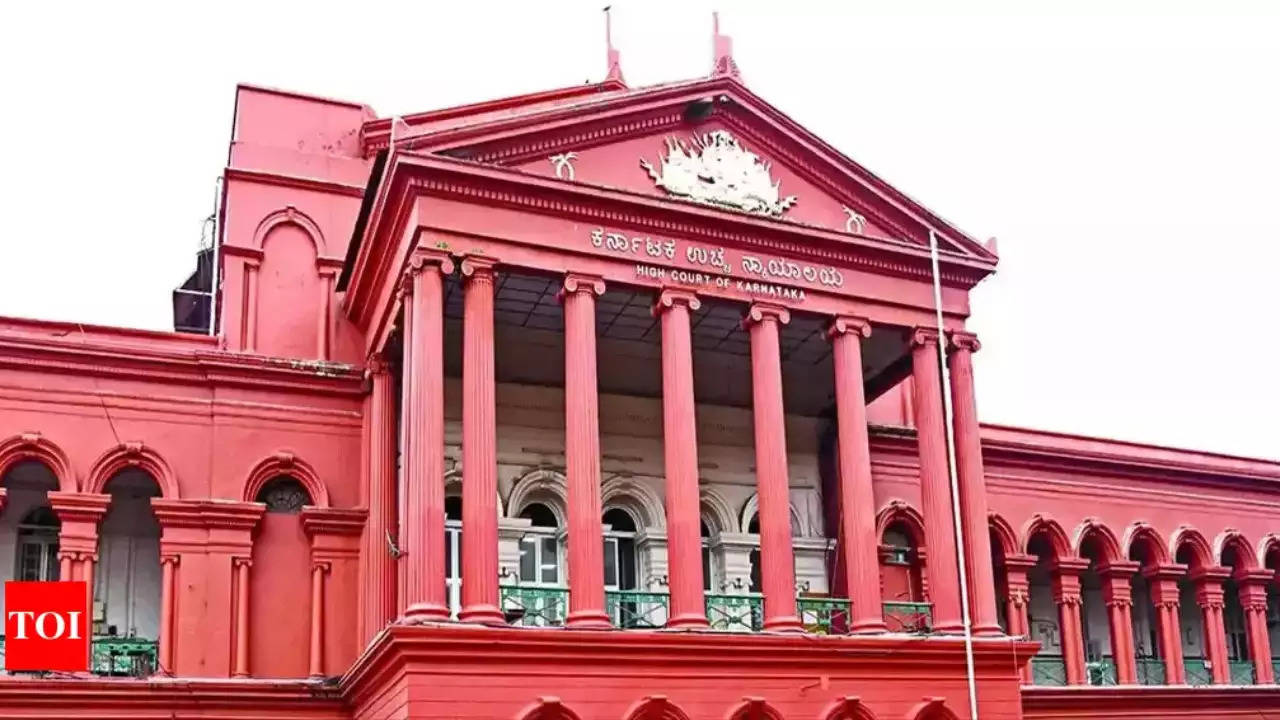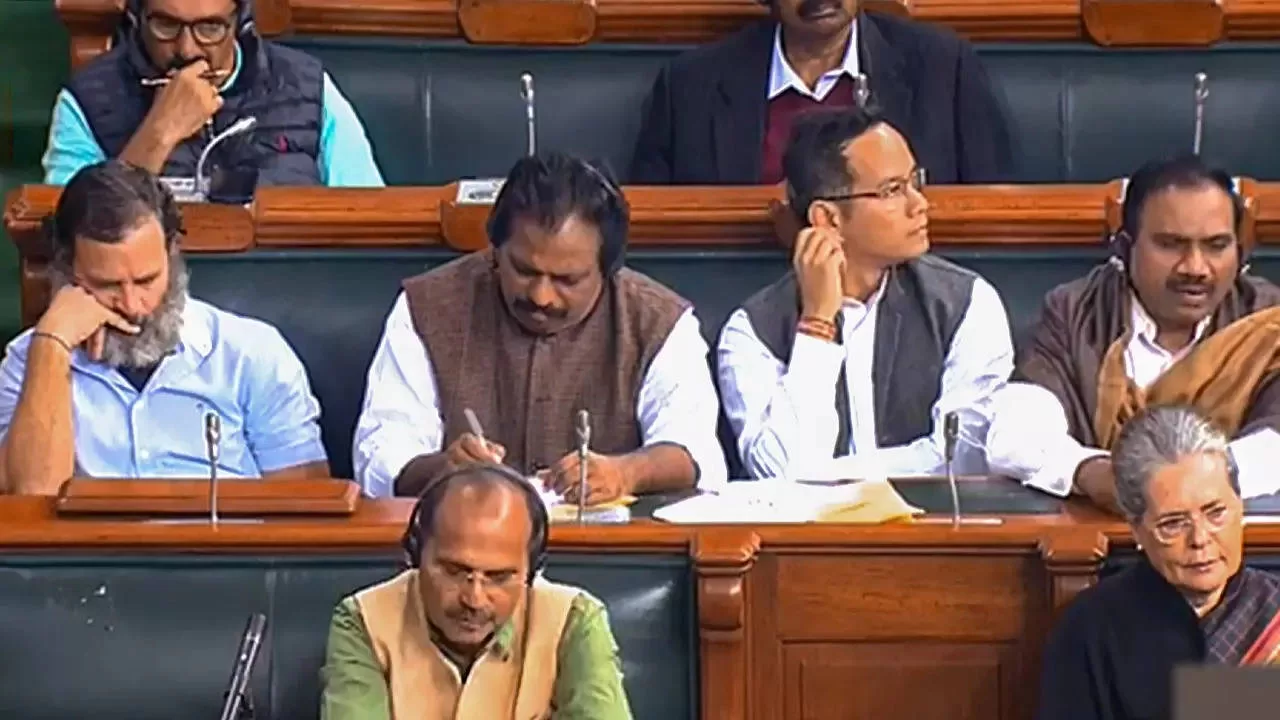BENGALURU: Merely taking the name of the caste of the victim would not make it an offence under the Scheduled Castes and the Scheduled Tribes (Prevention of Atrocities) Act, 1989, unless it is with an intention to insult the person belonging to that caste, the Karnataka high court observed recently.
Quashing proceedings against an accused in so far as it relates to provisions of the Atrocities Act, the HC also pointed out that under Rule 7, the probe has to be conducted by a police officer not below the rank of deputy SP and it has been violated in this case as it was done by a police sub-inspector.
Partly allowing a petition filed by V Shailesh Kumar, a resident of Bandesandra village, Bengaluru rural district, Justice M Nagaprasanna said the petitioner has to face trial in so far as offences under IPC like assault, criminal intimidation, etc.
The case is about an altercation between two teams after a cricket match. On June 14, 2020, Jayamma of Iggaluru village registered a complaint. She alleged her son Manoj and his friend Pradeep were eating near a shop and around 4.30pm, Shylesh Kumar with 30 people came there on two-wheelers and a car and hurled abuses against Manoj. Another person attacked them with weapons and beer bottles causing injuries and also assaulted them after taking them in the car.
Police investigated the matter and filed a chargesheet, invoking both Atrocities Act and IPC provisions. On March 1, 2021, the special judge ordered registration of a special case under the Atrocities Act. It was challenged by Shylesh, who claimed there was no intention, even if it is accepted that abuses were hurled taking the caste name.
The judge noted that in the case on hand, the said aspect (intention to insult) being conspicuously absent, permitting further proceedings to continue about offences under the Atrocities Act would become an abuse of process of law.
“Section 3(1)(r) (of Atrocities Act) mandates that whoever intentionally insults or intimidates with intent to humiliate a member of a Scheduled Caste or a Scheduled Tribe in any place within public view. Section 3(1)(s) would mandate that if any person is seen to have abused the Scheduled Caste or Scheduled Tribe by caste name in any place within public view. Therefore, the soul of the provision is intention. The insult should be intentional and the intimidation should be with intent to humiliate a member of the Scheduled Caste or Scheduled Tribe” Justice Nagaprasanna pointed out in his order.
The judge added that neither the chargesheet nor statements narrate any other circumstance except saying that the name of the caste of the complainant’s son was also used when abuses were hurled. “There is no narration of any intention to insult or humiliate taking the name of the caste, either in the statements or in the summary of the chargesheet” the judge said.
He added, “It is an admitted fact that the investigation, in the case at hand, is conducted by police sub-inspector and the chargesheet is filed by police sub-inspector. Therefore, there is violation of Rule 7…”
Quashing proceedings against an accused in so far as it relates to provisions of the Atrocities Act, the HC also pointed out that under Rule 7, the probe has to be conducted by a police officer not below the rank of deputy SP and it has been violated in this case as it was done by a police sub-inspector.
Partly allowing a petition filed by V Shailesh Kumar, a resident of Bandesandra village, Bengaluru rural district, Justice M Nagaprasanna said the petitioner has to face trial in so far as offences under IPC like assault, criminal intimidation, etc.
The case is about an altercation between two teams after a cricket match. On June 14, 2020, Jayamma of Iggaluru village registered a complaint. She alleged her son Manoj and his friend Pradeep were eating near a shop and around 4.30pm, Shylesh Kumar with 30 people came there on two-wheelers and a car and hurled abuses against Manoj. Another person attacked them with weapons and beer bottles causing injuries and also assaulted them after taking them in the car.
Police investigated the matter and filed a chargesheet, invoking both Atrocities Act and IPC provisions. On March 1, 2021, the special judge ordered registration of a special case under the Atrocities Act. It was challenged by Shylesh, who claimed there was no intention, even if it is accepted that abuses were hurled taking the caste name.
The judge noted that in the case on hand, the said aspect (intention to insult) being conspicuously absent, permitting further proceedings to continue about offences under the Atrocities Act would become an abuse of process of law.
“Section 3(1)(r) (of Atrocities Act) mandates that whoever intentionally insults or intimidates with intent to humiliate a member of a Scheduled Caste or a Scheduled Tribe in any place within public view. Section 3(1)(s) would mandate that if any person is seen to have abused the Scheduled Caste or Scheduled Tribe by caste name in any place within public view. Therefore, the soul of the provision is intention. The insult should be intentional and the intimidation should be with intent to humiliate a member of the Scheduled Caste or Scheduled Tribe” Justice Nagaprasanna pointed out in his order.
The judge added that neither the chargesheet nor statements narrate any other circumstance except saying that the name of the caste of the complainant’s son was also used when abuses were hurled. “There is no narration of any intention to insult or humiliate taking the name of the caste, either in the statements or in the summary of the chargesheet” the judge said.
He added, “It is an admitted fact that the investigation, in the case at hand, is conducted by police sub-inspector and the chargesheet is filed by police sub-inspector. Therefore, there is violation of Rule 7…”






